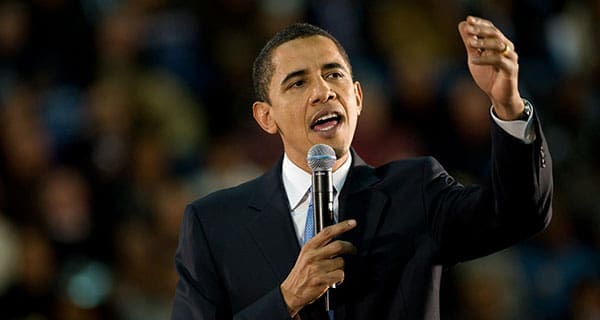 A recent column about Franklin Roosevelt and the advent of the Cold War prompted a question. How might the Roosevelt/Stalin relationship compare to the current one between Barack Obama and Vladimir Putin? In turn, that got me thinking about how American presidents, particularly Democrats, dealt with Russia.
A recent column about Franklin Roosevelt and the advent of the Cold War prompted a question. How might the Roosevelt/Stalin relationship compare to the current one between Barack Obama and Vladimir Putin? In turn, that got me thinking about how American presidents, particularly Democrats, dealt with Russia.
Why focus on Democrats? Well, they’re supposed to be the “smart” party, or at least that’s how the popular media narrative generally goes. And there’s no doubt but that academic and think tank support overwhelmingly flows to them. If the smartest politicians have the smartest people to advise them, the prospects of success should surely be maximized.
So, let’s consider three Democratic presidents who, between them, cover a broad historical sweep – Roosevelt, John F. Kennedy and Barack Obama. And to ice the cake, all three graduated from Harvard, one of the world’s most prestigious universities.
Roosevelt’s experience with Russia was, by his own admission, disappointing. Although relatively well disposed towards Josef Stalin and convinced of his own ability to charm and persuade, he was essentially played for a sucker at the February 1945 Yalta summit. Believing that he’d been promised “free and unfettered” elections in Poland, Roosevelt left for home in what the historian David Reynolds describes as a state of “supreme exaltation.” But within a matter of weeks he was complaining that Stalin had already broken all his promises.
Kennedy, too, generated high hopes, with inspirational rhetorical flourishes sprinkled all over his 1961 inaugural address. There was the stirring bit about the torch being passed to a new generation who’d be prepared to pay any price and bear any burden, plus the patriotic bit about what you could do for your country. And there was also a prospective olive branch: “Let us never negotiate out of fear. But let us never fear to negotiate.” Still, a mere 21 months later, the world came to the brink of nuclear war, largely because of the way Nikita Khrushchev picked-up the wrong cues from Kennedy’s behaviour.
As for Obama, euphoric expectations were such that he immediately received the Nobel Peace Prize, tantamount to being awarded Olympic gold before the starter’s pistol had even fired. However, despite a flamboyant diplomatic “reset” and subsequent sotto voce promises of second-term flexibility, relations between America and Russia are now at their lowest ebb since the Cold War.
What went wrong?
Hubris, defined as excessive pride or self-confidence, certainly had something to do with it, at least in the Roosevelt and Obama situations. If you get to be president, the chances are that you don’t suffer from any lack of self-esteem, so it’s very easy to believe that the power of your personality and the unique keenness of your insight will be sufficient to resolve any problem.
In Kennedy’s case, there was also a curious error. While campaigning for president, he’d been critical of Dwight Eisenhower for allegedly leaving America in a position of relative weakness by failing “to build the positions of long-term strength essential to successful negotiations.” Yet his own handling of the Bay of Pigs fiasco and the manner in which he allowed Khrushchev to bully him at the 1961 Vienna summit projected precisely the kind of weakness that he’d warned against, thus giving rise to the miscalculations that precipitated the Cuban Missile Crisis. As Khrushchev reputedly wondered: “What’s wrong with him? Can he really be that indecisive?”
Then there’s the simple fact that not everyone sees the world the same way. When Putin made his move in Ukraine, the Obama administration expressed astonishment at the idea that anyone in the 21st century could take such an antiquated view of acceptable international behaviour. Putin, though, obviously didn’t see things the same way. And there’s the rub. In a world where diversity isn’t simply a mindless slogan, different political cultures will take radically different views of what’s acceptable.
Interestingly, Harry Truman – arguably the most effective Democratic president in dealing with Russia – never graduated from any university, let alone Harvard. And while that isn’t necessarily a knock against an elite Ivy League education, it’s still a useful reminder of the value of a little humility.
To paraphrase a chastened Kennedy’s response to the question of what he’d learned during his first two years in office, making the speeches is the easy part.
Pat Murphy casts a history buff’s eye at the goings-on in our world. Never cynical – well perhaps a little bit.
The views, opinions and positions expressed by columnists and contributors are the author’s alone. They do not inherently or expressly reflect the views, opinions and/or positions of our publication.


